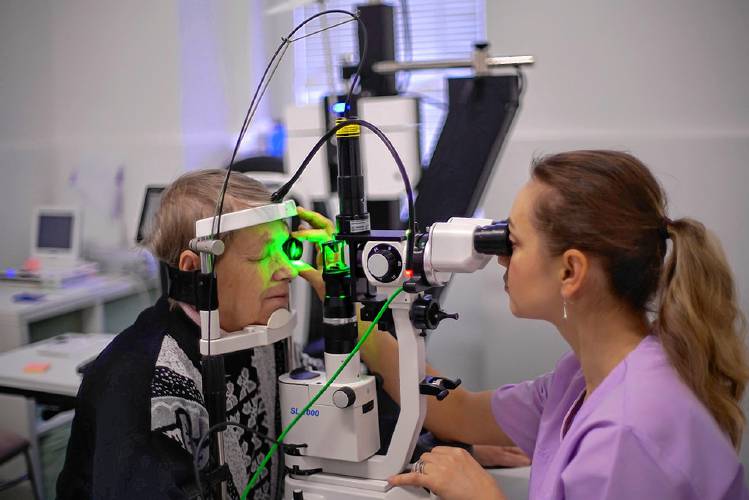Opinion: Seeing the full picture: Optometry can increase access to care

Pixabay Pixabay
| Published: 05-16-2024 6:00 AM |
Dr. Tony Sacco lives in Bow. Dr. Tyler Weber lives in Concord.
During the past several decades, healthcare education, training and innovations have advanced exponentially to everyone’s benefit. Unfortunately, the laws arbitrarily dictating limitations on scope for certain practitioners have not moved at the pace needed to keep up with the patient-driven demands in healthcare today.
There is no clearer example of this issue than the restrictive optometric practice laws in New Hampshire. They leave patients needing to travel for additional appointments with additional costs, have tests repeated, and burden caretakers for procedures that doctors of Optometry could perform in our offices if we were allowed to practice to our full licensure in New Hampshire.
A solution is obvious: Let us practice the way we are trained.
Senate Bill 440 would expand critical patient access by bringing outdated scope of practice laws up to modern day practice, furthering advanced surgical procedures and board authority provisions for doctors of optometry. These changes are in line with the New Hampshire laws for other doctoral-level healthcare providers such as dentists and podiatrists. Without it, the state’s population is denied full access to the comprehensive, high-quality care optometrists can deliver.
Doctors of Optometry are the leaders in primary eye healthcare and are at the front lines of diagnosing and delivering care. In New Hampshire, there are two counties without a single ophthalmologist, and another two counties with only a single ophthalmologist. Optometrists are the only eye care providers practicing in all ten New Hampshire counties, providing eye care access to 100 percent of the state’s population.
Becoming a doctor of Optometry requires a four-year undergraduate degree and an additional four years of rigorous classroom and clinical doctorate training, followed by national board examinations. The education focuses on the diagnosis and treatment of ocular disease conditions, including performing laser procedures and minor surgical procedures of the eyelids.
All optometry colleges and universities in the United States provide comprehensive training in these in-office procedures, and they have been performed in dozens of states for more than 40 years, with safe and effective outcomes.
Article continues after...
Yesterday's Most Read Articles
 New Hampshire legalizes public alcohol consumption in designated ‘social districts’
New Hampshire legalizes public alcohol consumption in designated ‘social districts’
 State rules Epsom must pay open-enrollment tuition to other school districts, despite its refraining from the program
State rules Epsom must pay open-enrollment tuition to other school districts, despite its refraining from the program
 Town turmoil: Chichester town administrator resigns again
Town turmoil: Chichester town administrator resigns again
 New Hampshire providers brace for Medicaid changes that reach beyond healthcare
New Hampshire providers brace for Medicaid changes that reach beyond healthcare
 Warner town administrator granted restraining order against selectman
Warner town administrator granted restraining order against selectman
 NH judge decides to pause Trump’s birthright citizenship order
NH judge decides to pause Trump’s birthright citizenship order
Unfortunately, there are those who continue to disparage our education and undermine the advancement of optometry and its essential role in caring for the public. Spreading biased and false information regarding optometry’s vital role in our healthcare system misleads the public and creates unfounded fear.
The American Medical Association has a national campaign called #StopScopeCreep that aims to stop advancements for any healthcare providers who do not have the MD degree. The millions of dollars organized ophthalmology spends annually to maintain the status quo by fighting optometric practice laws could be used to help enhance patient care, instead of suppressing it. We should be working towards a future in which collaborative care and patient needs come first.
The American Academy of Ophthalmology reported that by 2035, the supply of ophthalmologists is projected to decrease by 12%, while demand will increase by 24%. In response to worsening provider shortages and rising healthcare costs, The U.S. Department of Health and Human Services has made clear recommendations that “states should consider changes to their scope of practice statutes to allow all healthcare providers to practice to the top of their license, using their full skill set.”
If New Hampshire wants to attract and maintain the best doctors to take the best care of its residents and wants timely, quality eye care, doctors of optometry must be allowed to treat patients using our full education and training.
Progress in healthcare should be inclusive and collaborative, benefiting patients across all sectors. Let’s make improved access to care a reality for the people of New Hampshire. Contact your representative today and urge them to support SB 440.







 Opinion: Trumpism in a dying democracy
Opinion: Trumpism in a dying democracy Opinion: What Coolidge’s century-old decision can teach us today
Opinion: What Coolidge’s century-old decision can teach us today Opinion: The art of diplomacy
Opinion: The art of diplomacy Opinion: After Roe: Three years of resistance, care and community
Opinion: After Roe: Three years of resistance, care and community
